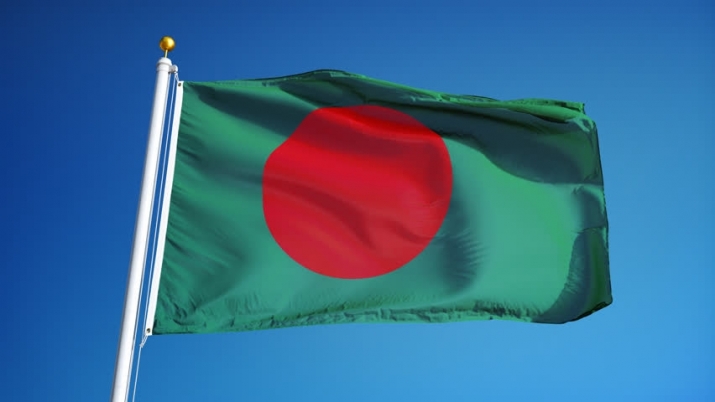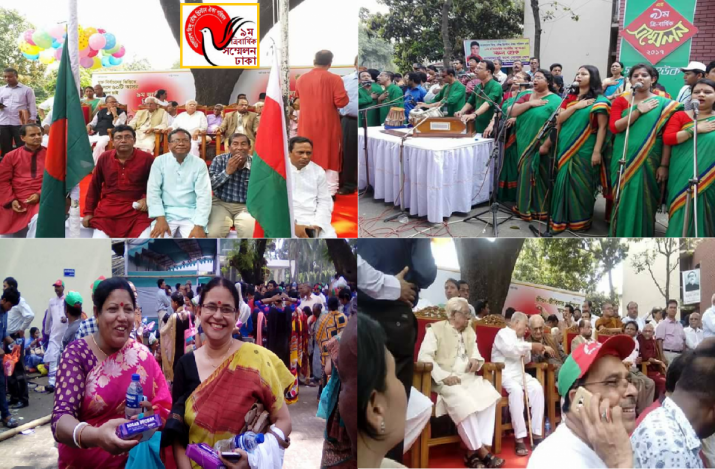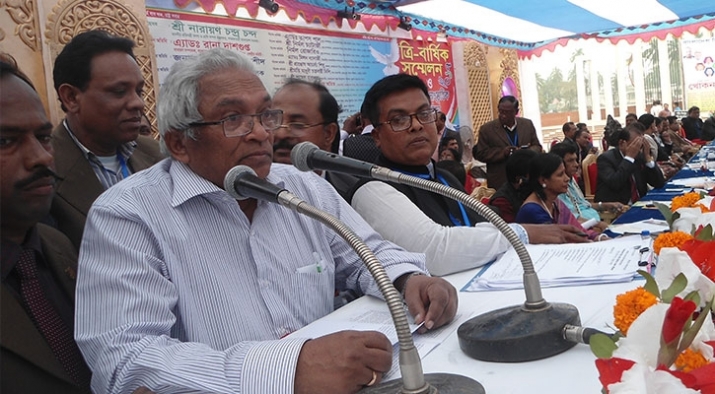FEATURES|THEMES|Interfaith
Marginalized and Ignored: The Corrosion of Bangladeshi Minority-Government Relations
 From shutterstock.com
From shutterstock.comBangladesh was founded in 1971 as a multiethnic and multicultural nation, with a constitution that grants freedom of peaceful religious practice. Unfortunately, Islamic fundamentalism remains a recurrent and deadly problem. Religious minorities, including Buddhists, report experiences of oppression, marginalization, and violence by segments of the majority Muslim population. This seems to have heightened in the past few decades, with new spats of viciousness characterized by the Bangladeshi press as religious conflict or ethnic violence.
Although most people believe that fundamentalist Muslims are responsible for such activities, the sad and complex reality is that Islamist-aligned political parties have exploited fear-mongering against minorities for their own benefit. Here I attempt to explore where Bangladesh’s Buddhist minorities fit into the broader political context.
Buddhists make up 0.61 per cent of the population, while Christians account for 0.3 per cent and Hindus for 8.15 per cent. The Hindu population used to be much higher—at 30 per cent in 1947, until a spate of anti-Hindu persecutions, forced possessions, and violence led to a dramatic drop in numbers. (Riaz 2010, 52)
Secularism was established as one of the four fundamental principles of the Bangladeshi constitution in 1972, a year after the war of independence against Pakistan. However, Ziaur Raham, the 7th president, removed secularism from the constitution in 1977, replacing it with a clause of “absolute trust and faith in Almighty Allah.” In 1988, H.M. Ershad, the 10th president, through the Eight Amendment Act of the Constitution, declared Islam to be the state religion. The Supreme Court of Bangladesh restored secularism in 2010, but Islam remained the state religion. In response to H.M. Ersad, Bangladeshi minorities formed an organization called the Bangladesh Hindu-Buddhist-Christian Unity Council (BHBCUC) to protect the human rights of religious and ethnic minorities.
 The BHBCOP 9th Triennial Conference 2017. From hinduexistence.org
The BHBCOP 9th Triennial Conference 2017. From hinduexistence.orgIt is commonly thought that the ruling political party in the country, the Awami League, benefits from minority votes. As a result, opposition parties (mostly comprising those of Islamist ideology) have been accused of instigating looting and physical attacks to intimidate people against voting for the ruling party, which happened after the national election in January 2014. One of these Islamist parties is called Jamaat-e-Islami Bangladesh. It advocates incorporating fundamentalist ideology into the state, which would render Bangladesh an Islamic theocracy.
Although secular parties vowed to stop the communal attacks and punish perpetrators, in most cases the attackers were never arrested. Secular parties themselves have been accused of being involved in violence while blaming political rivals to obtain international support. Law enforcement agencies, instead of protecting the minorities, have also been accused of defending the instigators of violence. While a large portion of minorities voted for the current government, it is questionable whether it has kept its promise to protect their interests and safety.
Buddhists have also reported experiencing discrimination, torture, murder, and destruction of property. For example, in September 2012, Buddhist temples and houses were destroyed in Ramu in southeastern Bangladesh. Considered the worst attack on the Buddhist community since Bangladeshi independence in 1971, it is believed that the attackers in Ramu wanted to seize Buddhist property to resettle thousands of Rohingya Muslims who had moved across the border between Bangladesh and Myanmar. Furthermore, violence has always been inflicted against indigenous people living in the Chittagong Hill Tracts (CHT), who are mostly Buddhists. In these incidents, the government took land from indigenous people in order to provide land for the resettlement of deprived Muslims from other parts of the country.
 Advocate Rana Dasgupta, general secretary of the BHBCUC. From news24.com
Advocate Rana Dasgupta, general secretary of the BHBCUC. From news24.comHaving been on the receiving end of such horrific communal disharmony, Bangladeshi Buddhists have designed a number of policies aimed at building bridges with Muslims; there is little choice and co-existence cannot be grudging but must be proactive and sincere. For example, last December, Buddhist leaders met the leaders of Hefajat-e Islam, a pressure group comprised of teachers and students from several Islamic institutions, to hold interfaith forums. Ameer Shah Ahmad Shafi, the top leader of Hefajat-e Islam, has asked the Muslim community to support the rights and security of non-Muslims, including Buddhists.
The Buddhist community has also organized protests against attacks and discrimination against Rohingya Muslims in Myanmar. Buddhists encourage all people to practice tolerance and promote cultural diversity. If only this perspective can shift relations between Muslims and non-Muslims in the direction of a mutually beneficial manner. From 7–8 April, the BHBCUC organized its 9th Triennial National Conference at Dhaka University. At the conference, minority leaders demanded the reservation of 60 seats in Parliament and the setting up of a new Ministry of Minority Affaires and National Minority Commission to represent minority interests.
The government of India is considering changing the Citizenship Act of 1955 to give shelter to oppressed Afghani, Bangladeshi, and Pakistani minorities in India. In this respect India would be able to assist Buddhists, Christians, Hindus, Jains, and Sikhs by issuing long-term visas and allowing them to have bank accounts, businesses, land purchasing rights, and so on.
However, this should not be India’s burden to bear. It is a matter of its Muslim majority neighbors’ (Bangladesh, Pakistan) treatment of non-Muslim minorities. Rather than India changing the Citizenship Act, it would be far more beneficial over the long term if minorities in countries such as Bangladesh were simply better treated, in an impartial and unbiased way, so that they feel safer and more welcome, and therefore more willing to be patriotic.
Reference
Riaz, Ali. “The Politics of Islamization in Bangladesh” in Religion and Politics in South Asia. Edited by Ali Riaz, 45–70. London and New York: Routledge. 2010.
See more
Resolution demands Bangladesh set up ministry, commission for minorities (The Indian Express)
Hindu Bouddha Christian Oikya Parishad demands 60 seats in Bangladesh Parliament (Struggle for Hindu Existence)
Buddhist leaders meet Hefajat ameer (The Daily Star)














